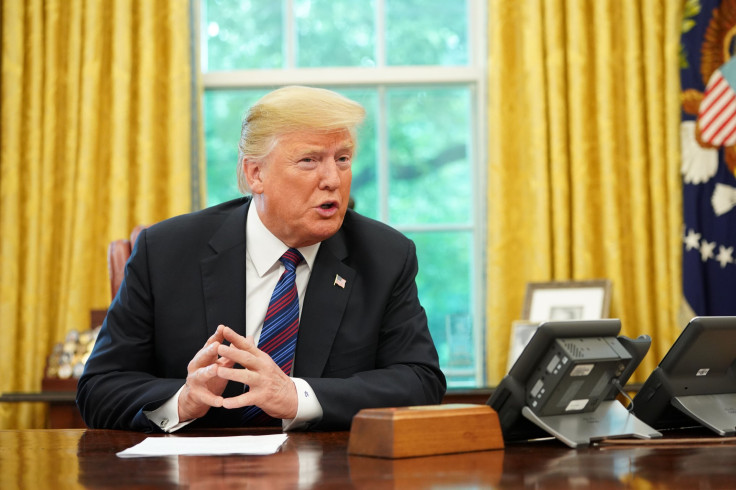US Importers, Consumers Are 'Unequivocally The Losers' In Trump’s China Tariffs, Says IMF

The International Monetary Fund (IMF) concludes that U.S. importers and consumers -- not China -- are the undoubted losers in president Donald Trump’s ramped-up trade war against China and the world.
It also poured scorn on Trump’s continuing claims the U.S. will earn hundreds of billions of dollars because China is paying the price for the trade war.
“Consumers in the US and China are unequivocally the losers from trade tensions,” said the IMF in a newly released report. It said higher Trump tariffs will also hurt U.S. economic growth.
“While the impact on global growth is relatively modest at this time, the latest escalation could significantly dent business and financial market sentiment, disrupt global supply chains, and jeopardize the projected recovery in global growth in 2019.”
The report says tariff revenue collected from levies on Chinese goods “has been borne almost entirely” by U.S. importers in a smack down of Trump’s false claim China is suffering financial hardships from his tariffs.
Trump claimed on May 8, and has repeated it many times since, the higher levies on Chinese goods are “filling U.S. coffers” with $100 billion per year paid for by China. On the other hand, the IMF says the bilateral trade deficit between China and the U.S. remains “broadly unchanged” even with the tariffs, which means U.S. coffers aren’t being filled with Chinese money.
The IMF report comes on the heels of an alarming Morgan Stanley report on Monday that predicted dire consequences for a bloodier trade war at Trump’s instigation.
“If talks stall, no deal is agreed upon and the U.S. imposes 25 percent tariffs on the remaining circa $300 billion of imports from China, we see the global economy heading towards recession,” said Morgan Stanley in a note to investors.
Morgan Stanley said that in response to these tariffs, the U.S. Federal Reserve will cut interest rates “all the way back to zero by spring 2020 while China would scale up its fiscal stimulus to 3.5 percent of GDP (equivalent to around $500 billion) and its broad credit growth target to 14-15 percent a year.”
Economic studies looking into the impact of Trump’s China tariffs conclude, as does the IMF, that U.S. consumers, not China or other foreign importers, are bearing the weight of this massive new cost.
Two recent papers cited by CNN found the tariffs on Chinese products have raised prices paid by American consumers. It said a number of American importers passed along the cost of the tariff while other domestic producers raised prices in the light of weaker foreign competition.
© Copyright IBTimes 2025. All rights reserved.




















